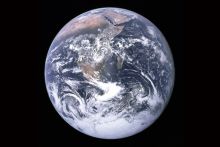Welcome to December! Here’s what’s new from the Critical Issues Program:
- Our next webinar, “Geologic Mapping to Empower Communities: Examples from the Great Lakes” will take place on Wednesday December 6th at 1:30pm EST. Detailed geologic maps help communities around the country to make informed decisions about a wide array of critical issues, including hazard mitigation, water quality and availability, energy and mineral development, and urban planning. However, less than one-third of the U.S. is mapped at the level of detail necessary to inform such decisions on the community scale. This webinar will focus on the efforts of the Great Lakes Geologic Mapping Coalition to increase the coverage and availability of detailed 3D geologic maps to help provide decision-relevant information to communities in the Great Lakes states. Speakers from Illinois, Minnesota, and Michigan will also provide examples where this information has informed major decisions in their states. For more information, and to register for this webinar, please click here.
- Looking for a (paid) summer internship? Applications are now open for three summer internships in the Policy & Critical Issues programs. We’ll have one position in the Critical Issues program and two in the Geoscience Policy program. One of the policy internships this year is specially funded by the Paleontological Society, so if you’re a student member of the Paleontological Society interested in the policy world, we’d love to hear from you. For more information on all of these internships, and to submit your application, visit our Internships & Fellowships page. Applications are open until March 1st.
- For those with advanced degrees (Ph.D. in geoscience or a Master's in engineering plus 3 years' professional engineering experience) and an interest in science policy, applications are open for the 2018-2019 William L. Fisher Congressional Geoscience Fellowship. Interested in spending a year immersed in the policy world in D.C.? Find out more here.
- Looking to earn Continuing Education Units or advance your knowledge within the geosciences? AGI’s Geoscience Online Learning Initiative (GOLI), started in cooperation with the American Institute of Professional Geologists, offers a variety of online courses on technical and applied geoscience topics that are taught by a range of experts from across the geosciences. We also produce courses based on almost all Critical Issues webinars, providing a great way to dive deeper into each topic. GOLI online courses are asynchronous, meaning that learners have the flexibility to actively self-pace their progress – no deadlines. Learners can browse course descriptions, enroll in specific courses, access content, and complete any course completely free of charge. All learners who complete a GOLI online course with a passing grade of 70% or higher may obtain Continuing Education Units (CEUs) for a nominal charge. For more information, visit https://goli.americangeosciences.org/
- This month’s additions to our Maps & Visualizations database include interactive maps of spills in South Dakota, geothermal resources in West Virginia, coal mines in Kentucky, and hazardous waste cleanup across the United States.
- For more updates and information from the Critical Issues Program, including details of upcoming events, follow us on Twitter @AGI_GeoIssues or subscribe to our mailing lists.

